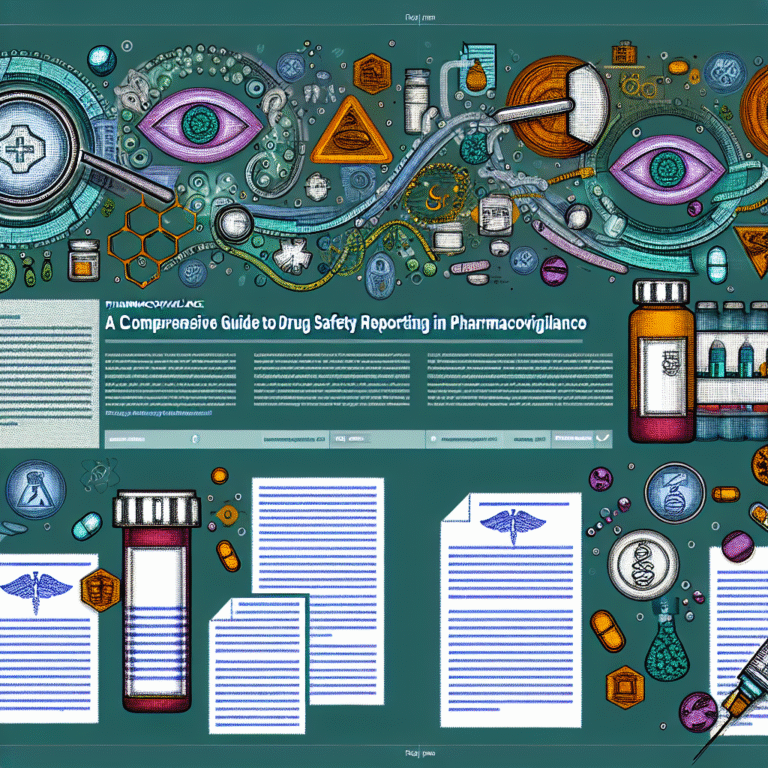How to Kickstart Your Career in Pharmacovigilance: A Comprehensive Guide
How to Start Your Career in Pharmacovigilance: A Complete Guide
Introduction
Pharmacovigilance is a key part of healthcare today, making sure that medicines are safe and effective for everyone. But what is pharmacovigilance? It involves finding, assessing, understanding, and preventing bad side effects or any other problems related to drugs. This field is important for keeping patients safe and ensuring drugs work well, aiming to reduce risks linked with medicines.
If you’re thinking about a career in pharmacovigilance, you may be interested because there’s a growing need for it, with a variety of roles and the chance to make a big impact on public health. It’s a lively industry full of chances to protect and improve health while being involved in new advances in medicine.
Understanding Pharmacovigilance
To really engage in pharmacovigilance, you need to learn a few key ideas and words:
– Adverse Drug Reactions (ADRs): These are bad reactions to drugs that happen when taken at normal doses.
– Risk Management and Signal Detection: This means spotting possible safety issues and making plans to handle risks.
– Regulatory Requirements: You need to follow strict rules set by groups like the FDA and EMA.
Pharmacovigilance is closely tied to clinical research since both need careful checking from early drug trials to post-marketing checks. Professionals in this field often work with regulatory bodies to make sure all steps are followed for safe medicine use. This team effort makes sure drug safety is carefully watched and controlled.
Important Skills for a Career in Pharmacovigilance
Let’s look at what you need to succeed in this field, in terms of education and other soft skills:
Educational Background:
1. Degrees in pharmacy, life sciences, medicine, or similar fields are very useful.
2. Special programs in pharmacovigilance are becoming more available for both undergrad and postgrad students.
3. Continuing education opportunities can also be really helpful.
Technical Skills:
1. Being good at data analysis and understanding it is crucial.
2. You often need to know how to use pharmacovigilance databases and software, like Argus or ArisGlobal.
3. Knowing the guidelines from organizations like the FDA and EMA is key.
Soft Skills:
1. You need to be good at communication and working in teams to interact with different departments and people.
2. Strong problem-solving and thinking skills are important to handle complex data and situations.
3. Being detailed and having an analytical mindset is essential.
Career Paths in Pharmacovigilance
Pharmacovigilance offers many career paths, whether you’re just starting or want to move up:
Entry-Level Positions:
1. Safety Data Associate
2. Pharmacovigilance Officer
3. Drug Safety Associate
Advanced Roles and Specializations:
1. Pharmacovigilance Manager
2. Risk Management Specialist
3. Signal Detection Analyst
Academic and Research Opportunities:
1. Teaching roles at universities or educational institutions
2. Research opportunities at pharmaceutical companies or independent institutes
3. Contributing to scientific journals and other publications
Tips for Job Searching
Starting a career in pharmacovigilance involves not just gaining skills, but also using smart job-search strategies:
Networking and Professional Groups:
1. Join industry groups like the International Society of Pharmacovigilance (ISoP).
2. Go to conferences and seminars to stay updated on industry trends.
3. Connect with professionals on platforms like LinkedIn.
Creating a Good Resume and Cover Letter:
1. Clearly show your relevant experience and skills.
2. Make each application fit the specific job you want.
3. Use numbers to prove past achievements and results.
Getting Ready for Interviews:
1. Prepare for common interview questions and situations you might face.
2. Show a good understanding of pharmacovigilance during interviews.
3. Show enthusiasm and flexibility, which are important in this fast-changing field.
Gaining Experience and Building a Portfolio
Experience makes you a stronger candidate:
Internships and Volunteer Work:
1. Go for internships with drug companies to gain experience.
2. Volunteer for research studies or clinical trials to understand the practical side.
3. These experiences add to your profile.
Online Courses and Certifications:
1. Take online courses focused on pharmacovigilance training.
2. Look into certifications like Good Pharmacovigilance Practices (GVP) that are valued.
3. Balance formal education with learning on your own to stay updated.
Projects and Research:
1. Get involved in pharmacovigilance-related projects during your studies or early career.
2. Conduct independent research on drug safety concerns.
3. Present your work through presentations or publications to improve your professional reputation.
Conclusion
Pharmacovigilance isn’t just a job; it’s a chance to make a big difference in healthcare. With the right skills and dedication, you’ll find lots of chances for growth and meaningful contribution. Here at Pharmacovigilance Foundations, we encourage you to explore this fulfilling path where science meets safety, and where every step you take helps improve the lives of people everywhere.






